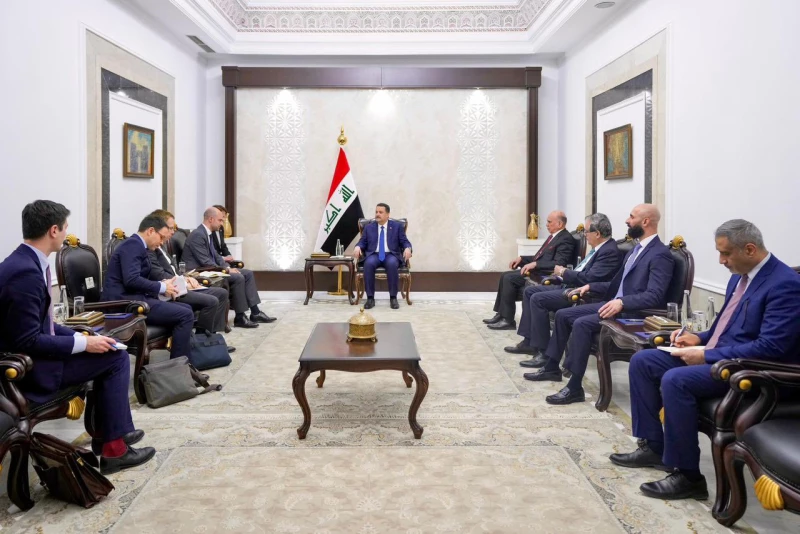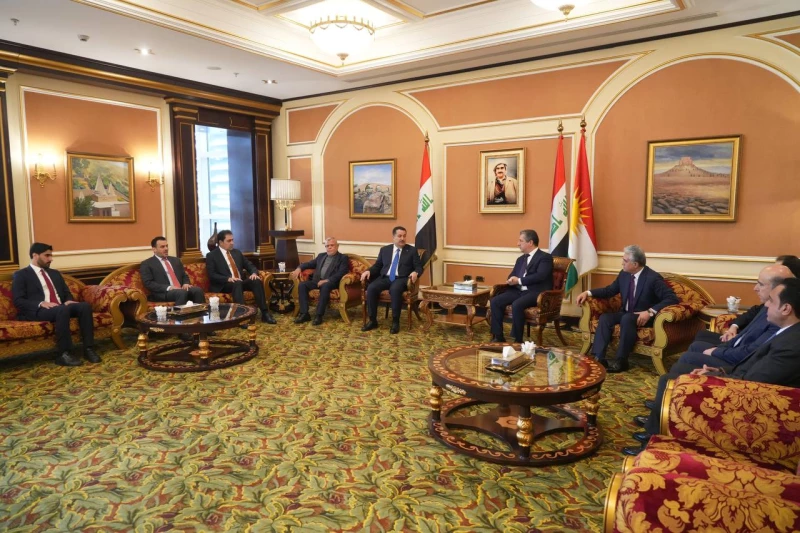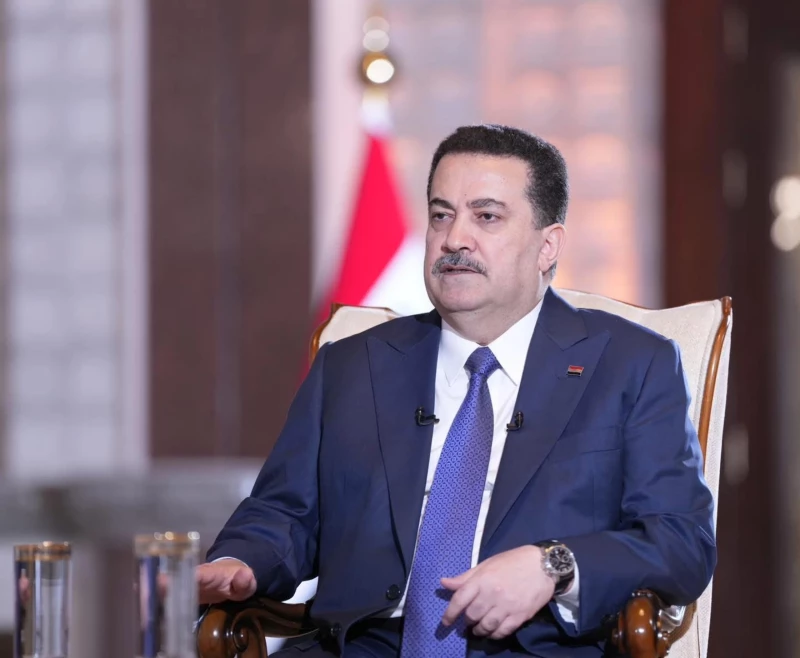DUBAI, UAE - Iraqi Prime Minister Mohammed Shia’ al-Sudani marked the second anniversary of his government on Tuesday, reporting substantial progress in government targets while acknowledging delays in certain areas.
During a cabinet session, he outlined achievements, challenges, and ongoing initiatives across multiple sectors, emphasizing an overall 62 percent completion rate of the government’s targeted goals.
Sudani highlighted broad advancements in infrastructure, healthcare, and education.
The Iraqi premier said his administration had made strides in restarting numerous stalled projects, some delayed since 2005.
“Out of 1,471 initially stalled projects, 555 have been revived, with an additional 442 contracts resumed across the provinces,” Sudani said.
Critical infrastructure projects have progressed, such as traffic decongestion in Baghdad and improvements in wastewater treatment and drinking water networks, while new projects were launched to address growing population needs, Sudani said.
Despite achievements, Sudani acknowledged challenges in key sectors, including “delayed water desalination efforts in Basra and underwhelming service levels at Iraqi airports.”
The prime minister also cited “setbacks in housing, including the distribution of residential land, which has been hindered by complex land issues, despite an initial pledge to distribute 500,000 residential plots.”
Electricity production has hit a peak, reaching 27,000 megawatts, with new initiatives underway, including 15 solar projects with a combined capacity of 5,720 megawatts.
Sudani pointed to record energy output and expanded infrastructure, particularly in Baghdad and areas with heavy pilgrimage traffic, which has contributed to reduced accident rates. He also unveiled significant housing projects, promising a “transformative impact on residential units with full citizen services.”
The government has focused efforts on combating poverty and unemployment. Sudani noted “an 85 percent increase in the number of families receiving social protection,” reaching over 7.6 million people, which has helped reduce the poverty rate from 23 to 17.6 percent
Unemployment, too, has dropped from 16.5 to 14.4 percent following the implementation of programs targeting advanced degree holders, contract workers, and top graduates.
Sudani reported progress on anti-corruption reforms and economic restructuring, including increased revenues from non-oil sectors by 6% and electronic payments by 7.6 trillion dinars, compared to 2.4 trillion in early 2023. Inflation has dropped from 4.9 to 3 percent since 2022, indicating “positive economic trends” under his administration.
Further government initiatives have included the Iraq Development Fund, designed to support private-sector growth with sovereign guarantees for investment projects, and progress in localizing pharmaceutical production. Efforts in this sector have led to a 35 percent local production coverage, a marked increase from 10 percent with a target of 85 percent in the next three years.
Border challenges and issues with outdated social security policies have impacted private sector growth, despite reforms at customs and tax registration offices. Sudani cited ongoing issues with border crossings, particularly in the Kurdistan Region, where efforts to unify customs tariffs and optimize revenues have yet to meet expectations.
Sudani conceded that Iraq has yet to fully capitalize on its religious and archaeological sites for tourism, noting a lack of progress in developing this potentially lucrative sector. Nonetheless, the government has achieved self-sufficiency in strategic crops and initiated a comprehensive water management project with Turkey to ensure long-term agricultural sustainability.
Key infrastructure projects, such as the Grand Faw Port and a strategic Development Road involving partnerships with Qatar, the UAE, and Turkey, are advancing, along with plans for new rail and metro systems in Baghdad, Karbala, and Najaf. Sudani also referenced security agreements, including a timetable for the departure of the Global Coalition forces and a United Nations resolution on Iraq's mission.
Looking ahead, Sudani indicated plans for a Cabinet reshuffle based on performance metrics, signaling a shift toward more results-driven governance. He underscored the need for updated legislation to facilitate investment and economic development, and he noted that Iraq’s census, another long-delayed milestone, is on the horizon.
The prime minister concluded with a focus on Iraq’s financial landscape, citing liquidity challenges, the prioritization of government spending, and an upcoming shift to a program-based budget.

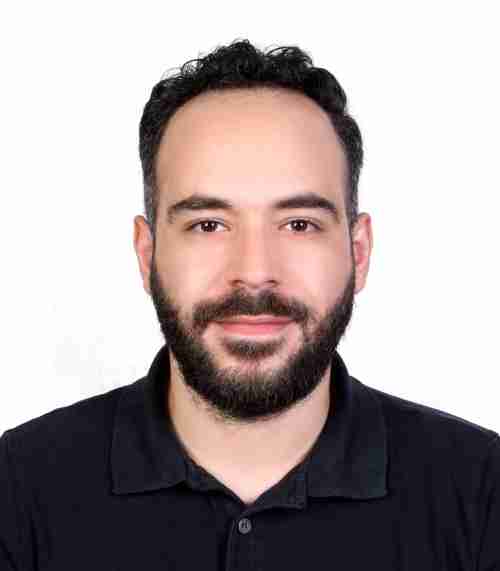
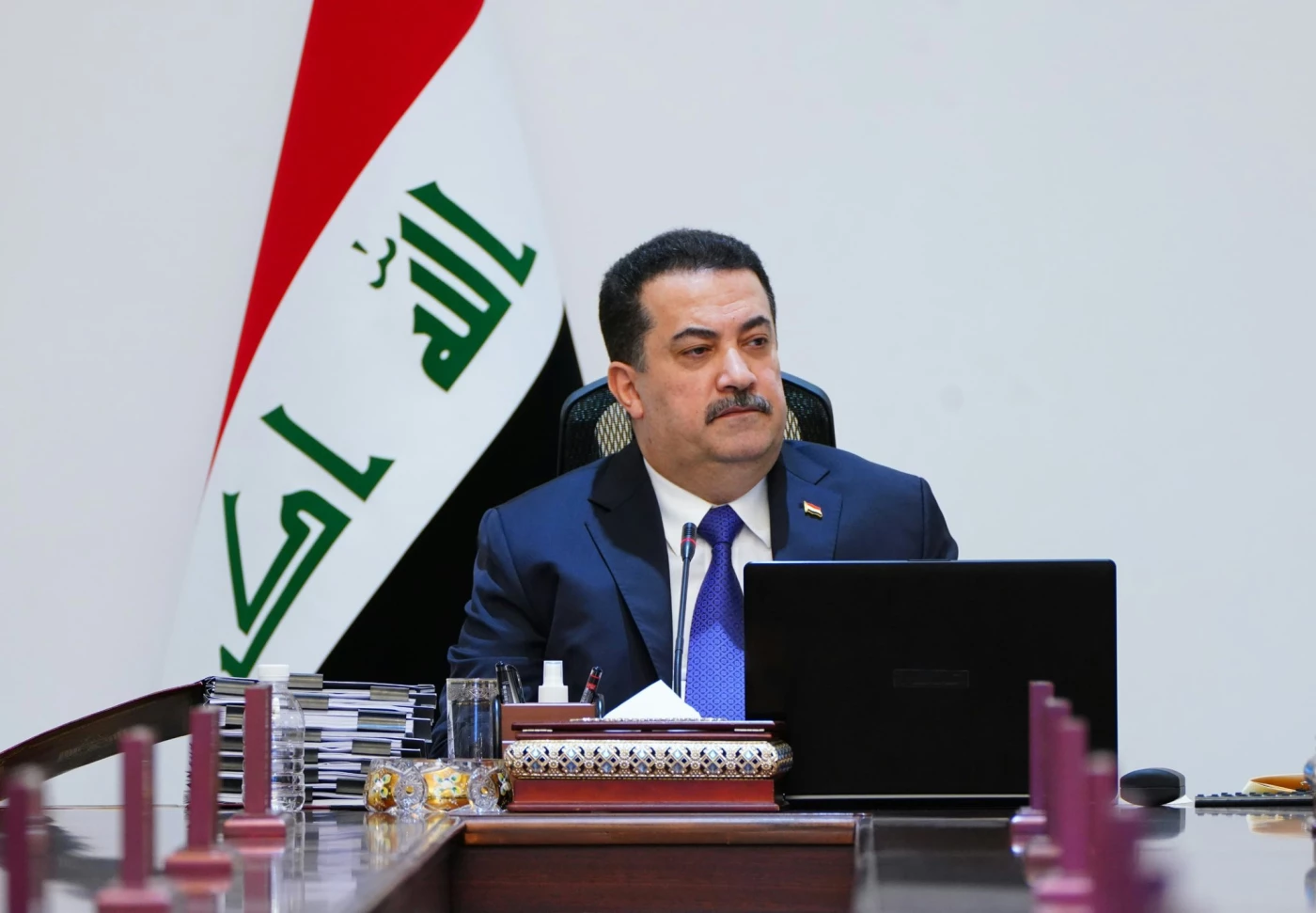
 Facebook
Facebook
 LinkedIn
LinkedIn
 Telegram
Telegram
 X
X
